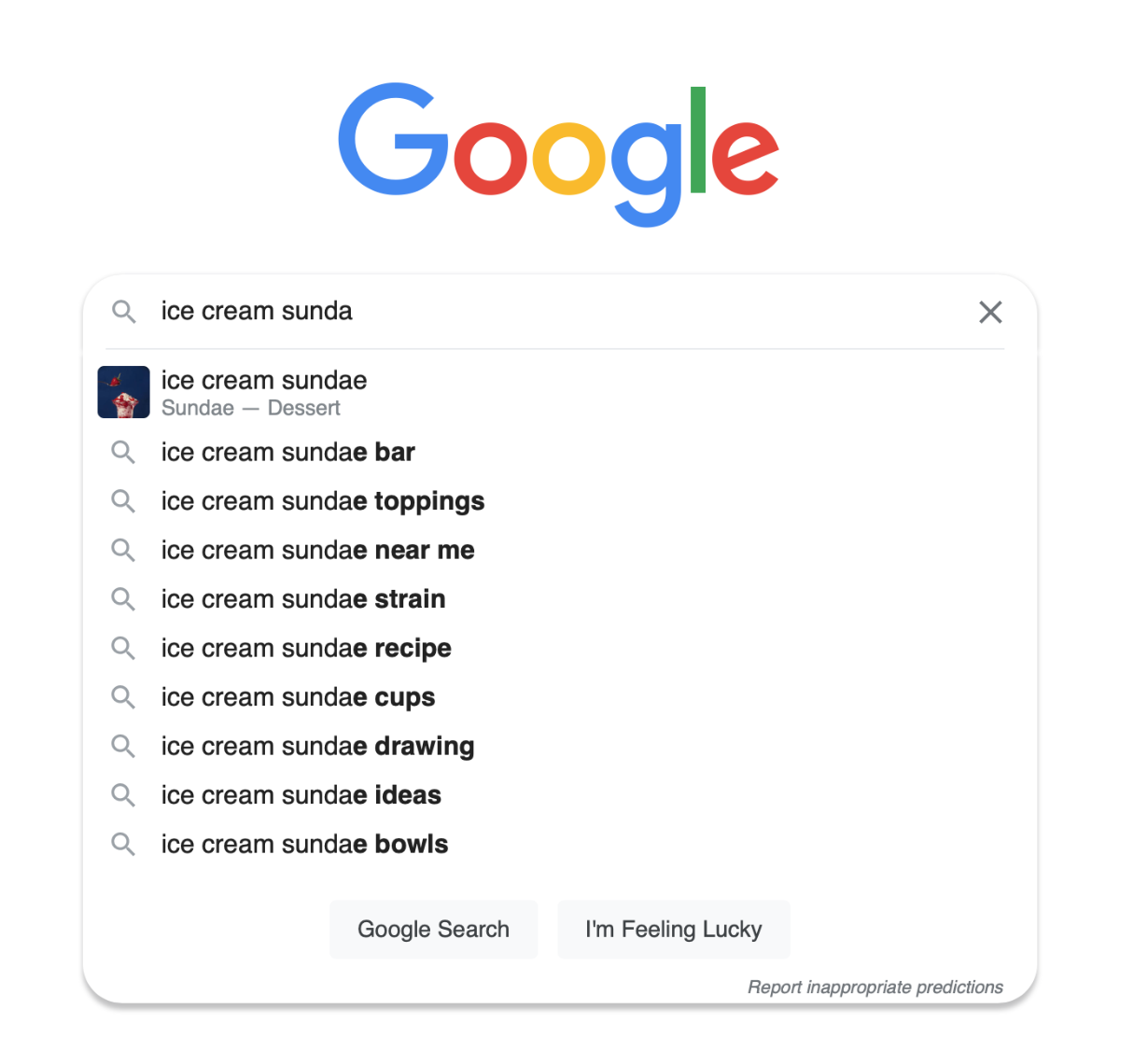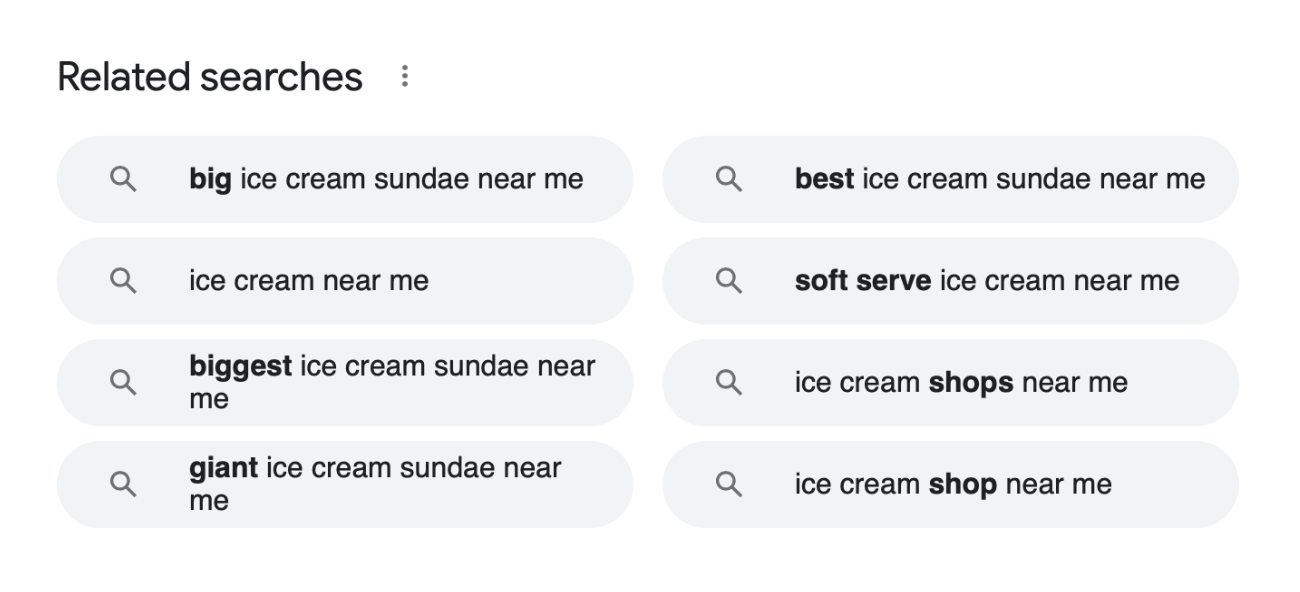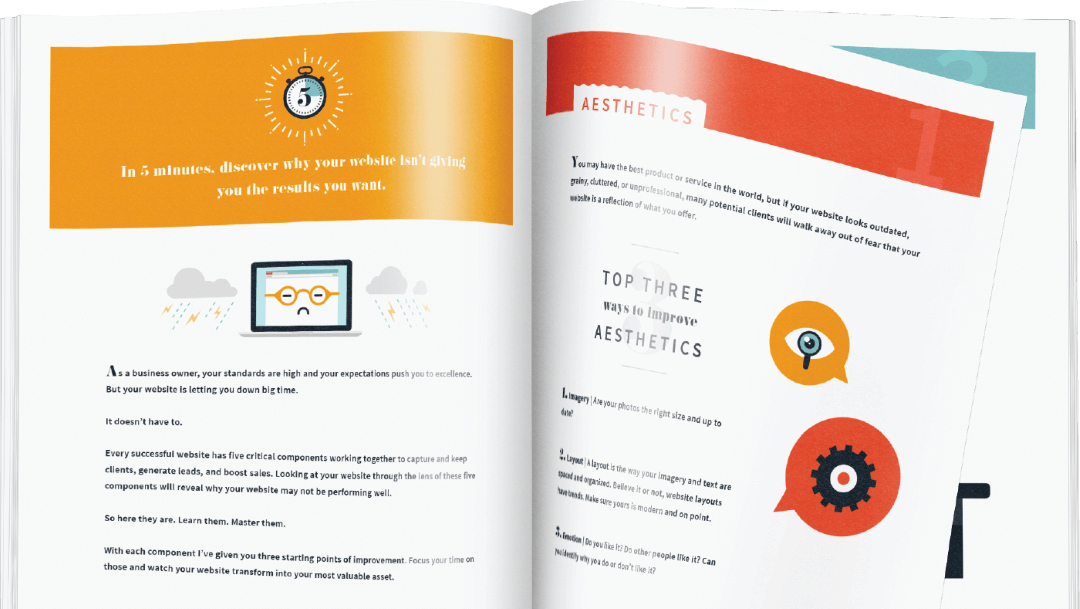So. Keywords. If you’ve spent 15 minutes in the world of website building, there’s a good chance you’ve come across this mysterious, jargon-y word. And perhaps you’ve even used it in a sentence with your web builder to build your internet street cred (don’t worry, this happens all the time 😉).
But, really, what does this vague, internet word really mean? And is it as important as everyone says?
What’s a keyword?
Keywords have everything to do with search engines and helping people find your website through organic searching (as opposed to paid searching through advertising).
There are two sides to keywords:
- The first is the person searching for something on Google, Bing, Duck Duck Go, etc. The words they type into the search bar are called keywords.
- On the other side is the actual webpage that contains the matching keywords to what they’re searching for.
When you build your website, you have the opportunity to match searchers with your website by handpicking keywords and integrating them into your website content. When the search engines have a good match, your website will be on the first page of the search engine results, which is a pretty big deal for your organic traffic growth. You look like the #1 expert on whatever topic or product the searcher was looking for.
So while keywords aren’t central to a good website, they do help a ton in telling the search engines who would be a good match for your website, and ultimately, getting the product or service you sell into the hands of people looking for it. Good keywords can be a bit like having a personal sales rep who finds leads for you who are already actively interested in what you’re selling.
Keywords may seem like a small thing, but they have the potential to get you one step closer to your customers without you having to put in a ton of continual effort.
How do you pick keywords?
This simple little question is the heart and soul of the whole operation. And it’s going to take a bit of legwork and research so that you find some great keywords.
First, great keywords are inspired by your customers. You have to find out what they’re wanting, talking about, and searching for.
Second, great keywords are also not in competition with other big websites. And we’ll talk about that in a second.
But let’s begin at the beginning. So, first, start with putting yourself in your customer’s shoes and begin with brainstorming.
Brainstorm
Create a list of topics and words that your customer would be interested in. To do that, let’s put you in the right mindset.
Imagine with me: Your perfect customer (the one that has their credit card on the table beside them, ready to buy) sits down at their computer and navigates to the Google homepage. Their fingers are poised over the keyboard, their eyes squinted into distant space as they try to figure out exactly how they want to search for the item or service they need. The lightbulb goes on and they excitedly lean over the keyboard and quickly type a series of words that charts their course into their Google search journey.
Or, more realistically, your customer is on their phone, feeling panicked in a dressing room, frantically searching for a local store that carries the right size of jeans for an event happening that very evening.
What were those words they typed into that search bar?
Those are the words you want to write down on your brainstorm list.
Brainstorming Pro Tip
If you have no idea what those words might be, start searching. Here are a few places you can look:
Google.
Enter your own product or service into the search bar — before you press enter, see what other searching phrases Google suggests. These phrases are actual phrases that Google has compiled from people searching. It’s a sneak peek to see what words people are using to find info on topics. For example, if I’m looking into ice cream sundaes, here’s what Google suggests I search for:

Google also has a super handy “Searches related to” section at the bottom of the search results page that compiles links to other searches people have completed. Again, this gives you more keyword ideas for how people might possibly search for your product or service:

Reddit.
Reddit is organized by topics so that people who are enthusiastic about something or people who are curious about a topic can easily find answers or other like-minded people. This is a goldmine for keywords. Simply type in your keyword idea into the search bar, then choose a subreddit. Then find threads with lots of comments and then you’ll get an idea for what people are interested in and searching for in your industry.
For example, typing in “wedding planning” brought up the following three subreddits to choose from. Even the subreddits themselves give you an idea of possible keywords.
Forums. Simply type in “your industry” + forum into a search engine and start looking into what people are talking about. For example, searching for “wedding planning forums” brought up user-driven forums on The Knot and WeddingWire and has a host of keyword options.

What makes a good keyword?
Now that you have a great list of potential keywords, it’s time to find the best ones.
The best keywords are keywords that don’t have a ton of competition. For example, if you sell coffee, the keyword “coffee” is going to have a ton of other websites fighting for the #1 spot on the search results page.
However, if you sell small-batch organic coffee, you may have a better chance of utilizing that keyword to get you to the top of a search engine results page.
Good, non-competitive keywords:
- Are more specific, maybe even longer phrases.
- When you Google the keyword option, the top results are smaller blog sites and NOT filled with ads or authority sites such as Wikipedia, government sites, or major businesses.
- Fit your business. Even if it seems like a good keyword but is only slightly relevant to your business, it’s not a good fit.
- Are trending upward. Visit https://trends.Google.com/trends/?geo=US to see if your keyword has an upward rise in interest or a falling interest.
How do I use the keywords on my website?
Now that you have a small list of good keywords, it’s time to use them on your website.
But first. Use them wisely, my good friend.
Don’t get caught in the trap of writing only for search engines. If you write for a robot, you’ll sound like a robot, and your actual, human customer won’t be happy about it.
The best way to use your keywords are in headings, titles, and headlines. If you can work a few into the body of your website, that’s great too. But the very last thing you want to do is lose a customer because they couldn’t understand what you were saying or the text was obnoxiously repetitive.
When search engines determine fit, rank, and importance on their results pages, they also take into account how many people read and stay on your website, so make sure your text is readable and likable for your target customer.
Keywords are best used:
- As headers at the top of a page
- As bold words at the beginning of a section
- Strategically and quietly throughout text
- As a blog topic
When will I see results?
Keywords aren’t a flash-in-the-pan sort of growth model. They take some time, but you’ll start to see your organic traffic grow as the search engines start to make the right connections.
And if you write blog posts around your keywords and continually tweak your content as you get to know your customers better and how they search, your organic growth will improve over time.
Are there any other keyword tools that are helpful?
So glad you asked! There are probably hundreds, but these seem to be a few of the most recommended ways to conduct keyword research and keyword competitiveness:
- https://ads.google.com/home/tools/keyword-planner/
- https://search.google.com/search-console/about
- https://explodingtopics.com
- https://questiondb.io
- https://www.semrush.com
- https://neilpatel.com/ubersuggest/
- https://answerthepublic.com
- https://ahrefs.com/keyword-generator
So…can you do this for me?
Websites and the internet at large can feel like such complicated beasts, but you don’t have to fight them alone.
We do this stuff every day and can help you find your best keyword options. But even better, we can write it for you. We have practice at writing content that customers AND search engines AND you like. That’s a win-win-win if I ever saw one 😉.


